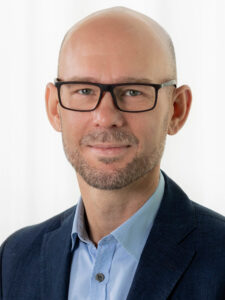
Vinnova leads the work with a new innovation cluster
The government wants to see increased investments in life science and advanced therapies in Sweden and has commissioned Vinnova to establish a national innovation cluster. BioStock spoke to the head of Vinnova’s health department, Lars Hammarström, who tells us about the assignment.
Vinnova has been commissioned to establish a national innovation cluster for commercialisation, skills development and production capacity for advanced therapies. This is stated in a press release from the agency, which will provide a partial report of thee assignment to the Ministry of Climate and Enterprise June 2024 at the latest and the assignment will be finalised no later than September 2025.
A long awaited investment
Lars Hammarström, head of the Health department at Vinnova, notes that investments in advanced therapies have been driven by industry, academia, and healthcare for many years.

“There is a strong analytical base that describes the bottlenecks that exist in the ecosystem around advanced therapies. A clear problem area is how to get early projects to grow in Sweden instead of moving abroad to gain access to capital, infrastructure, and expertise in order to conduct clinical studies and get to market”, says Lars Hammarström.
He notes that Sweden has a good foundation with strong research and good clinical environments, but that we do not have sufficient capacity for small companies to be able to scale up in Sweden.
“We need to strengthen this area, and it is very gratifying that the issue now has a foothold in politics. The interest has been there for a long time in the business community, which will enable us to carry out the assignment in such a short time.”
Comparable to CCRM
Lars Hammarström says that the plan is to create a type of structure inspired by CCRM, Canada’s centre for the commercialisation of regenerative medicine, through partnerships with industry.
“We will create an innovation environment where companies have access to the expertise and infrastructure they need at an early stage. Small businesses will be connected with researchers and larger players and have access to test and demo environments.”
Vinnova wants to connect the value chain in life science with the help of an innovation cluster that operates on a national level.
“The ecosystem that Sweden needs to develop is not centralised in one place. It is about linking up with the research that exists around the country. Universities and hospitals are important in this initiative and need to take advantage of the opportunities it presents.”
But the assignment will also require investments in a central infrastructure for companies working with advanced therapies.
“We need to provide appropriate facilities with dedicated expertise for the development of this type of product. Among other things, this will involve investments in laboratories. Where this facility will be established is something we are currently working on based on the documentation we have received from the government assignment, the business community and the analyses and pilotstudies that have been carried out.”
In the press release from the government, cancer, Parkinson’s disease and diabetes are mentioned as examples of diseases that in the future may be cured with new advanced therapies, but which indications will be included in the initiative has not yet been decided.
“The initiative is not thematically delimited; this type of investment requires co-financing from the business community and therefore needs to be in line with Swedish companies’ commercialisation needs. The advantage is that the type of investment required here is generic for many types of production orientations as it is more about processes and less about tailoring the environment for any specific indication.”
The work will continue beyond 2025
The assignment runs until September 2025, but Lars Hammarström sees a longer time frame for the work.
“In 2025, the assignment will be finalised, but my view is that the work will continue to run over a longer period of time, where I believe that we at Vinnova will be involved also in the longer term. This is a piece of the puzzle that will strengthen the entire system, but it is not enough. We need more investment in collaboration between academia, hospitals and industry. It is very positive that the government signals that they continue to see life science as an important innovation area for Sweden.”
The assignment is the first that Vinnova has received from the current government.
“I am very pleased that the first assignment Vinnova has received from the new government is in life science and advanced therapies, which shows that these areas continues to be considered a high priority.”
The hope is that a strengthened ecosystem will create additional value in the industry.
“We have many strong components, but now it is important to supplement to get rid of bottlenecks. We hope to lay a cornerstone of the ecosystem that will provide great value, not only for the business community through exports, but also for all patients here at home.”


